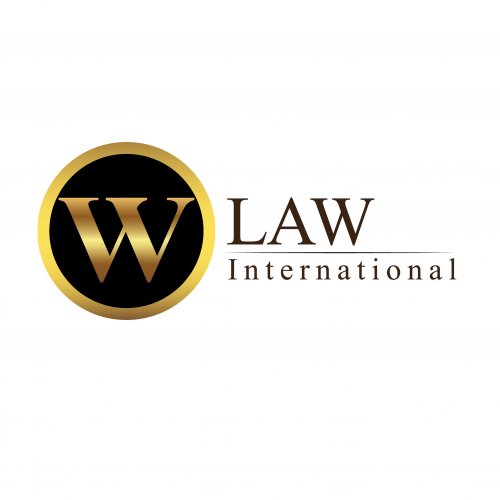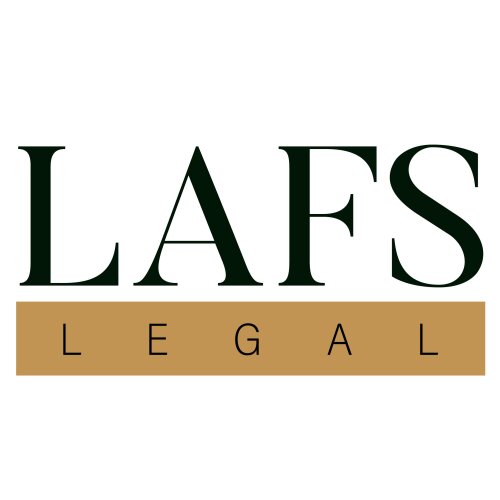Best Private Client Lawyers in Thailand
Share your needs with us, get contacted by law firms.
Free. Takes 2 min.
Or refine your search by selecting a city:
List of the best lawyers in Thailand
Legal guides written by Smart Legal Solutions:
- Main Legal Measures to Protect Foreign Investment in Thailand
- The importance of the geographical indications for the Thai economy
About Private Client Law in Thailand
Private client law in Thailand refers to the legal services provided to individuals and families, mainly focusing on personal legal matters. This field encompasses areas such as succession and inheritance, estate planning, wills, trusts, family law, wealth management, asset protection, and tax planning. The primary objective is to help individuals and their families manage and protect their assets, ensure that their interests are legally safeguarded, and facilitate the smooth transfer of wealth and property during their lifetime or after their passing. Legal professionals in this area are adept at helping both Thai nationals and foreign residents navigate the country's unique regulatory landscape.
Why You May Need a Lawyer
People may seek the help of a lawyer specializing in private client services in Thailand for numerous reasons:
- Drafting, reviewing, or revising wills to ensure they are valid under Thai law and reflect your wishes
- Setting up trusts or other wealth management structures to protect family assets or support beneficiaries
- Planning the transfer of property and assets to heirs, especially where there are complex family situations or foreign assets
- Helping executors administer estates or handle probate processes
- Advising on tax implications for inheritance and gifts
- Assisting with family matters such as prenuptial agreements, marriage, divorce, or child custody
- Dealing with cross-border legal issues, particularly for expats and foreigners with assets in Thailand
- Challenging or defending inheritance disputes or claims against estates
- Advising elderly clients on powers of attorney and guardianship arrangements
Local Laws Overview
Thai private client laws are distinct in several key respects. Inheritance and succession in Thailand are governed by the Civil and Commercial Code, which outlines how property is distributed if someone dies intestate (without a will). The law distinguishes between statutory heirs, including spouses, children, parents, siblings, grandparents, and uncles or aunts, each with specific rights to the estate.
Wills must meet formal requirements to be recognized, such as being in writing, signed, and witnessed. Foreigners can make wills in Thailand for assets located here, but there may be coordination needed with wills made in other jurisdictions.
Thailand does not recognize common law trusts, but certain structures and contractual arrangements can be used to achieve similar asset protection goals. The country also has specific regulations for property ownership, especially regarding land and houses, which can restrict foreign ownership.
Taxation is another important factor, as estate and gift taxes may apply in some situations. Cross-border families should pay particular attention to international tax and succession planning issues. Family law, including marriage, divorce, adoption, and child custody, is also mainly governed by the Civil and Commercial Code as well as the Family Court system.
Frequently Asked Questions
What happens if someone dies without a will in Thailand?
If a person dies intestate, their assets are distributed according to the statutory heir classes set out in the Civil and Commercial Code. A surviving spouse, children, parents, siblings, grandparents, aunts, and uncles may all have a claim, depending on the family situation.
Can foreigners own property in Thailand?
Foreigners generally cannot own land directly in Thailand, but they can own condominium units, subject to specific quotas. Other arrangements, such as leaseholds or company ownership, are sometimes used but require careful legal advice.
Is my foreign will valid in Thailand?
A foreign will may be recognized for assets based in Thailand, but it is often advisable to execute a Thai will for local assets to avoid legal complications and delays.
What makes a will legally valid in Thailand?
A will in Thailand must be in writing, signed by the testator, and witnessed by at least two people simultaneously. Specific formalities must be followed to ensure the will is enforceable.
Are there inheritance taxes in Thailand?
Thailand imposes an inheritance tax on certain assets over specific thresholds. The rates and rules may change, so legal advice is recommended to understand current obligations.
Can I set up a trust in Thailand?
Thailand does not traditionally recognize common law trusts. However, alternative structures may be used for asset protection, but these require careful planning and legal guidance.
How can I challenge a will or estate distribution?
Heirs or interested parties may challenge a will or estate by filing a lawsuit in the Thai courts, typically on grounds such as lack of capacity, improper formalities, or undue influence.
Do Thai laws treat Thai nationals and foreigners differently in succession matters?
The same statutory inheritance rules apply, but there may be differences regarding property ownership, especially with land. Tax and asset reporting rules may also diverge for foreigners.
What should expatriates consider in Thai estate planning?
Expatriates should coordinate their Thai will with any wills from their home country, understand local property ownership rules, and plan for potential tax liabilities in Thailand and abroad.
How do I appoint a guardian or someone to manage my affairs if I am incapacitated?
Thai law allows for powers of attorney and court-appointed guardianships. It is wise to prepare these documents in advance, especially for elderly clients or those with special needs.
Additional Resources
Several organizations and governmental bodies can provide further guidance on private client matters in Thailand:
- Ministry of Justice - oversees the functioning of Thailand's legal system, including probate and family court matters
- Department of Provincial Administration - handles registration of vital records, such as births, marriages, and deaths
- Legal Aid Centers - available in major cities for those who need basic legal consultation
- Embassies and Consulates - often provide legal resource guidance for their nationals residing in Thailand
- Thai Lawyers Council - a professional association that can refer clients to approved practitioners in private client law
- Professional law firms with dedicated private client or family law departments
Next Steps
If you require legal assistance with private client matters in Thailand, consider the following steps:
- Make an inventory of your assets and outline your objectives, such as how you wish to distribute your estate or manage family matters
- Gather all relevant documents, such as property deeds, marriage and birth certificates, bank statements, and any existing wills
- Contact a reputable lawyer or law firm that specializes in private client services. Choose one with proven experience in cross-border and local Thai legal matters
- Schedule a consultation to discuss your needs and receive tailored advice
- Review any advice and documentation provided carefully, and seek clarification on anything you do not understand
- Update your arrangements periodically, especially after major life events such as marriage, divorce, births, or acquisitions of significant assets
Lawzana helps you find the best lawyers and law firms in Thailand through a curated and pre-screened list of qualified legal professionals. Our platform offers rankings and detailed profiles of attorneys and law firms, allowing you to compare based on practice areas, including Private Client, experience, and client feedback.
Each profile includes a description of the firm's areas of practice, client reviews, team members and partners, year of establishment, spoken languages, office locations, contact information, social media presence, and any published articles or resources. Most firms on our platform speak English and are experienced in both local and international legal matters.
Get a quote from top-rated law firms in Thailand — quickly, securely, and without unnecessary hassle.
Disclaimer:
The information provided on this page is for general informational purposes only and does not constitute legal advice. While we strive to ensure the accuracy and relevance of the content, legal information may change over time, and interpretations of the law can vary. You should always consult with a qualified legal professional for advice specific to your situation.
We disclaim all liability for actions taken or not taken based on the content of this page. If you believe any information is incorrect or outdated, please contact us, and we will review and update it where appropriate.
Browse private client law firms by service in Thailand
Thailand Attorneys in related practice areas.
Browse private client law firms by city in Thailand
Refine your search by selecting a city.

















